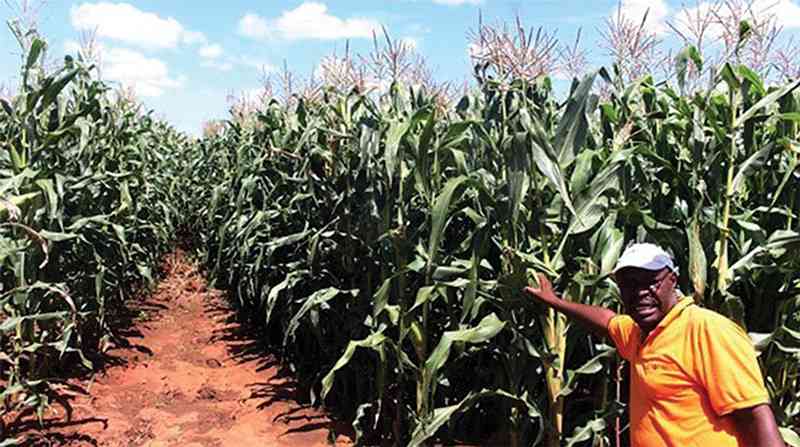
LANDS, Agriculture, Water, Fisheries and Rural Resettlement secretary John Basera says sustainable financial models, responsibility and accountability systems are required to avoid a relapse to the previous food insecurity conundrum.
This comes as the sector has for the past years recorded massive growth in certain segments, with government expecting this to lead to the attainment of self-sufficiency in terms of agricultural production.
The need for steady financial support to the agricultural sector comes as a 2019 World Bank study found that the sector loses US$126 million annually owing to production risks largely associated with drought and other weather-related events.
Speaking to NewsDay Farming, Basera said the foundation had been laid through agricultural investment frameworks and policies.
“The sector has grown since 2018, positively responding to deliberate interventions across various crop and livestock value chains. Agricultural growth is now past an inflection point.
However, sustainable financial models, responsibility and accountability systems will be required to avoid a relapse into the former food insecurity conundrum,” he said.
“We are riding on successes registered since the implementation of the agriculture recovery plan, horticulture recovery and growth plan, the livestock recovery and growth plan, among others.”
Agriculture is central to the national economy, contributing between 15% and 20% of gross domestic product.
- Zim has 2nd highest rising food prices: WB
- 'Market discipline difficult to maintain'
- Govt policy unpredictability destroying formal economy
- UZ fiasco shows govt is aloof
Keep Reading
Approximately 60% to 70% of the population, predominantly in rural areas, is employed and derive incomes from the agricultural sector.
Basera said government had adopted a new mantra to ensure policies were in place to facilitate a smooth transition.
“The ministry has adopted a new mantra, Going for Growth (#G4G2023),which is born out of the realisation that all fundamentals, in terms of plans, strategies and policies are in place to facilitate a smooth transition,” he said.
“The entrenchment of #G4G2023 entails judicious deployment of resources committed by the fiscus, development partners and non-State actors to drive growth from all strategic crops and livestock value chains.”
Water-tight interventions have also been developed to ensure that production of key commodities surpasses the annual national requirements, Basera indicated.
Approximately 3,9 million people were said to have had insufficient food during the first week of April 2023, according to the World Food Programme’s food security and markets monitoring report.
The number of people estimated to be resorting to “crisis and above” food-based coping strategies was estimated at 7,2 million, a decrease from 7,4 million reported during the first week of January.
The findings show that in typical deficit-producing areas, households are likely to continue selling livestock to raise income for food and non-food needs.
According to findings of a 2023 first round crop and livestock report, the total area planted under all crops marginally increased by 8% from 3 387 038 hectares in 2021/22 season to 3 674 149 hectares this season.
The country is expected to harvest 2,3 million tonnes of maize this year, a 58% jump from the previous season driven by favourable rains.
l Read full article on www.newsday.co.zw






